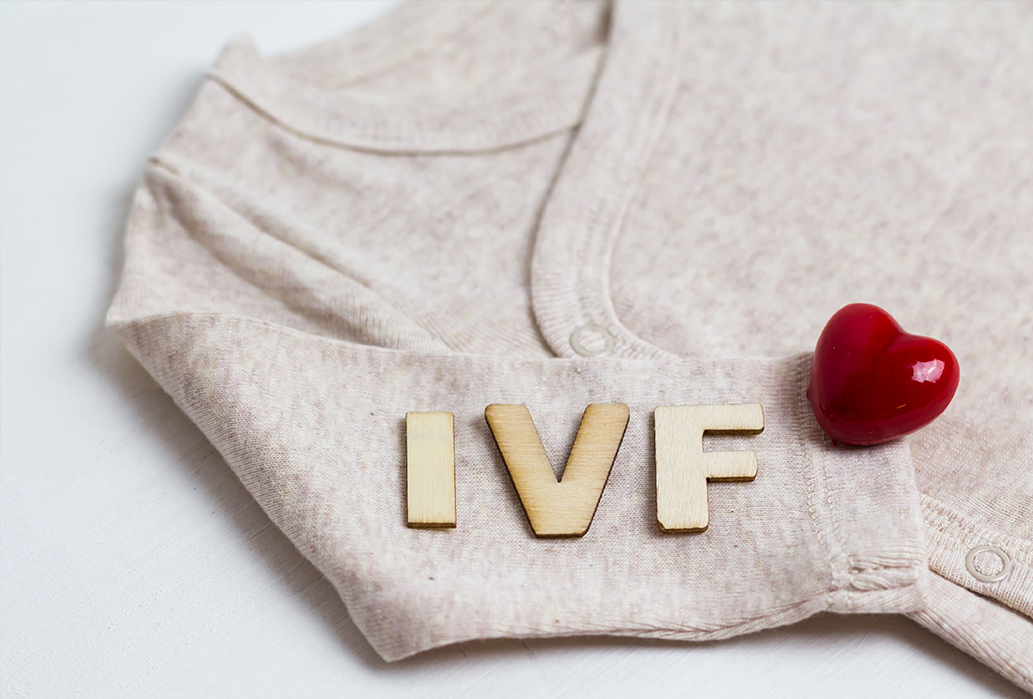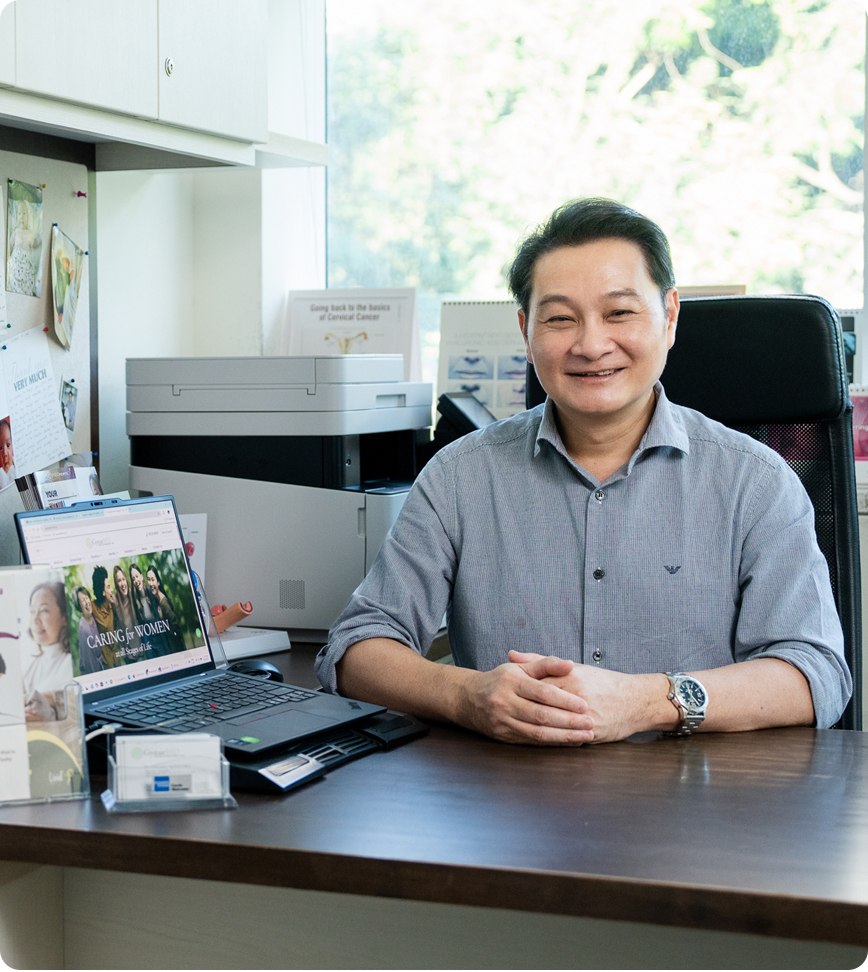What Is IVF (In-Vitro Fertilisation)?
In-Vitro Fertilisation, widely known as IVF, is the technique in which the egg and sperm are fertilised together outside the woman’s womb in a laboratory. It can be divided into 4 different stages.
In-Vitro Fertilisation, widely known as IVF, is the technique in which the egg and sperm are fertilised together outside the woman’s womb in a laboratory. It can be divided into 4 different stages.

The IVF procedure is the only available fertility treatment for women with irreparably-damaged or blocked fallopian tubes. It is also recommended for couples with conditions like endometriosis, ovulatory dysfunction, unexplained infertility, failed SOIUI and sperm disorders.
Gynaecologists may also recommend the IVF procedure for women over the age of 40 who experience reduced fertility, low ovarian reserve, or polycystic ovarian syndrome (PCOS). Individuals who have undergone tubal ligation (female sterilisation) or a vasectomy (male sterilisation) may require IVF to conceive. Couples unable to conceive after six months (above 35 years old) to a year (below 35 years old) of trying or those with a known genetic disorder who want to avoid passing it on may also consider IVF.
The entire IVF procedure needs to be properly adhered to so it requires close monitoring. Couples are required to undergo a detailed consultation with our gynaecologist before treatment can commence. Initial consultations will involve blood tests and health screenings for infectious diseases, semen analysis and ovarian reserve testing to ensure suitability for the treatment.
Our IVF doctor will be delighted to answer any of your questions regarding the entire IVF process during your consultation. This will provide you with a more thorough understanding of what to expect and help to reduce patient anxiety when you realise that modern IVF treatments are now relatively stress-free.
Once a couple is deemed eligible for an IVF procedure in Singapore, the gynaecologist will
discuss the details of the IVF process and recommend several pre-treatment tests and preparatory
measures.
Women may undergo ovarian reserve testing which involves a blood test and a vaginal ultrasound
to assess the number of eggs remaining in a woman’s ovaries and predict how well she may respond
to fertility medications. The inner lining of the uterus may also be examined via a
hysteroscopy. In this test, an illuminated hysteroscope is inserted through the vagina and
cervix into the uterus.
Our staff will also instruct and supervise the female partner on how to properly inject herself
with daily hormonal injections which stimulate the ovaries to produce multiple eggs. Patients
are typically advised to start taking folic acid supplements at least one month before the
embryo transfer and for the first three months of the pregnancy to reduce the risk of
miscarriage.
After the embryo transfer, patients can generally get back to their regular daily routine with
some precautionary advice. A pregnancy blood test is then performed 14–17 days after the embryo
transfer to measure beta HCG (human chorionic gonadotropin) levels which is a hormone released
by the placenta during pregnancy.
If the pregnancy test result is positive, the patient will continue her antenatal care at our
clinic. However, if the pregnancy test yields a negative result, the gynaecologist will
determine if the treatment protocols need to be modified before commencing the next IVF cycle.
At our fertility clinic, the success rates for IVF-ICSI treatments vary according to various infertility factors such as the patient’s age (females in particular), the quality of eggs and sperm, the duration of infertility, and the general state of health of the couple. Generally, a higher success rate is expected for women below the age of 35.
Other factors that affect IVF success rates include a history of past pregnancies and/or number of IVF cycles and any underlying medical conditions. Additionally, certain lifestyle factors like smoking, alcohol consumption, obesity and stress may reduce the chances of conceiving through IVF.
IVF treatment is considered a safe procedure with most patients experiencing no adverse effects on their health or pregnancy. Nonetheless, it is important to be aware of potential risks associated with IVF treatment, including:
Some patients may experience the following side effects following IVF treatment:
Our IVF clinic offers comprehensive fertility assessments and personalised treatment plans in a supportive environment to help couples fulfil their desire of starting a family. For enquiries about our IVF services or to schedule a consultation with our specialist, Dr Christopher Ng, please contact us at 6733 8810 today.
That depends on which stage of the IVF treatment one is at. Certain stages such as the self-injections tend to be painless but egg retrieval process may be slightly uncomfortable which is why our patients are sedated for this procedure.
The cost of an IVF procedure in Singapore can vary depending on hospital fees, gynaecologist fees, medications, ultrasound scans or laboratory tests, as well as any additional tests and treatments required along the way.
The entire IVF cycle, from the initial consultation to the embryo transfer, usually takes approximately 5–7 weeks to complete.
A single IVF cycle usually produces multiple embryos, enough for an average of two to four transfers. If the first transfer is unsuccessful, the remaining embryos can be used for the next transfer. There is no limit to the number of IVF cycles needed to conceive as it depends on the determination of the couple and their financial budget.
Pregnancy is not a guarantee. That said, pregnancy testing usually takes place around 14-17 days following embryo transfer.
No, gender selection during IVF is not allowed in Singapore. This option is only allowed for patients with a family history of a sex-linked chromosomal disorder.
If an IVF cycle is unsuccessful, patients usually wait 1 month before they commence the next cycle

Dr Christopher Ng
Consultant Obstetrician & Gynaecologist
MBBS (Imperial College, UK), MMed (O&G) (S’pore),
FRANZCOG (Aust-NZ), FAMS (O&G) (S’pore)
Dr Christopher Ng is an obstetrician and gynaecologist in Singapore with over 20 years of experience. He is proficient in the management of fertility problems and offers a wide range of fertility treatments ranging from infertility assessment to assisted reproductive technologies (ART) such as IVF and SOIUI. With a patient-centric approach, Dr Ng is committed to helping his patients achieve their goal of parenthood.